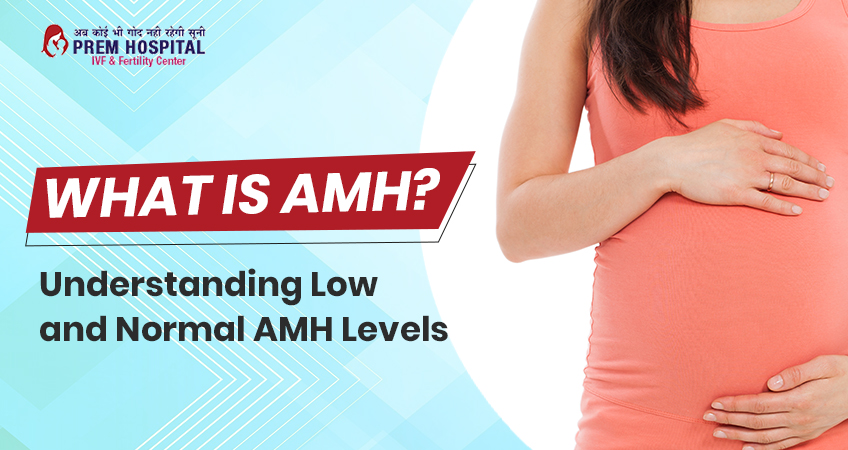You might be familiar with the word hormone and have heard the names like estrogen, progesterone, insulin, oxytocin, and testosterone. And during pregnancy, you might have heard about human chorionic gonadotropin (hCG). So, anti-Mullerian hormone (AMH) may not be on your list when you talk about the hormones. But you must know about this hormone especially if you are going to become pregnant in the future.
What is AMH?
In both males and females, this hormone is produced, but usually, it is measured in women’s bodies. This is because the women’s ovaries generate follicles that are responsible for AMH production. More eggs generation leads to more AMH and vice versa. Hence before undergoing IVF, AMH level is determined in women for evaluation of ovarian reserve and accordingly all procedures and medications start.
Usually AMH level decreases with age, this is because a woman is born with all her eggs which deplete with age. But it doesn’t mean that at a young age you will have a healthy AMH level. It completely depends on your lifestyle. Smoking, diet, illness are some of the factors which can lower the AMH level.
Different AMH levels and their meaning
Development of eggs in women secrets AMH, the higher the level of ovaries, the higher will be the AMH level. Hence a low AMH is considered as a low ovarian reserve. Such low egg sacs are common in women with are near to menopause.
An ideal or normal AMH level is considered as 1.0 ng/mL to 3.0 ng/mL. A very low AMH level is 1.05 ng/ml. Anything which is below this level is called an ‘undetectably low’ AMH level. Below are some reasons for low AMH level:
- Age factor- With age, these hormones decrease in the body.
- Ovarian cysts surgery.
- An autoimmune condition
- Genetic issues
Let’s talk about AMH test results
Through the AMH test, it becomes easy for doctors to know about the ovarian reserve of a woman. With age this level naturally becomes low, a very low AMH level is a sign of early menopause in some women. A very high AMH level is an indication of polycystic ovary syndrome (PCOS). Your AMH level test will let you know about the eggs left in the body, but it doesn’t tell about egg quality. Hence this test goes alongside other female fertility treatments.
How AMH level increases
It is well known that AMH levels drop down with the increase in age and such condition arrives when menopause approaches. However AMH level fluctuates from cycle to cycle. This implies some factors result in a natural decline of AMH level, but there are ways to boost it up naturally. Well, it is difficult to predict how much time it will take to increase the AMH levels by age, but you should include more nutrients and vitamin D in your diet to increase the AMH level.
Low AMH level and fertility
The good news is that, although you have a low AMH level, it doesn’t imply that you can’t become pregnant naturally. You can surely become pregnant through your eggs or donor eggs, as after all, you need only one healthy egg. Your AMH level can never judge your chances of becoming pregnant, there are many other factors involved to boost fertility. If you are unable to conceive, you may be advised to go with IVF, but it will completely depend on your personal choice. The possibility of pregnancy decreases with AMH level drops below low; in that case, you must discuss all the options with your doctor.
Impact of low AMH on IVF
If you have decided to go with IVF and still struggling to conceive, then there are a few aspects that you should consider. Firstly, if you are below 35 and have a low AMH level then you don’t have to worry much. Fertility specialists will advise some medications to you for stimulation of follicles which will be of good quality. Remember that low AMH never implies low-quality eggs, rather it means low quantity eggs and this isn’t important when you are going for IVF.
Unfortunately, cancer treatments result in early menopause which means a non-existent AMH level and makes it impossible for women to conceive.
Final Takeaway
Through AMH level you can know your ovarian reserve or the egg count. With an increase in age, AMH level drops down. Your doctor may suggest you do an AMH level test to know what exact fertility treatment for women you need. However, AMH level is not the only test you will be required to do, there are many more. One recent study predicts that AMH measurement can help doctors to know the final menstrual period.
If you have any questions about AMH level, then you should speak with your doctor or infertility specialist to get a better understanding.

